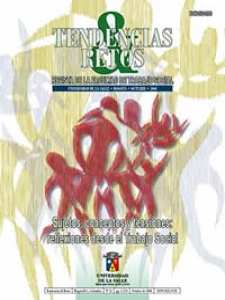Abstract
The research was performed at Comuna seven of Cali, Colombia in order to understand the process of community empowerment in a particular context, respect to the relationship between the healthful territories construction and the local development, recognizing (examining closely) the characteristics of citizen participation, the interaction between the different actors, power relations, the conflicts in the planning scenario and the way of use it. It was realized a qualitative interpretative research, with ethnographic design, case method, with community and public functionaries representatives, who participated in Territorial Planning Committee. The results show that the scenarios of participative planning are strategic for public health and help the process of community empowerment because the community makes decisions that qualify their capacity of participation and organization through managing and controlling of affaires that impact the conditions of health of population. The community empowerment more than a strategy is the politic dimension of Public Health that should change its sectorial condition toward the planning of global actions in the framework of integral development. In the construction of healthful territories the participation of the communitarian actor responds to their own motivations and interests and not to the originating ones from the governmental sector. In the Committee of Territorial Planning power relations are pronounced, generating conflicts that as well are fed on corrupted political practices, which interfere and turn slow the process of community empowerment in their three constituent categories, participation, decision-making and management.Downloads
Download data is not yet available.



